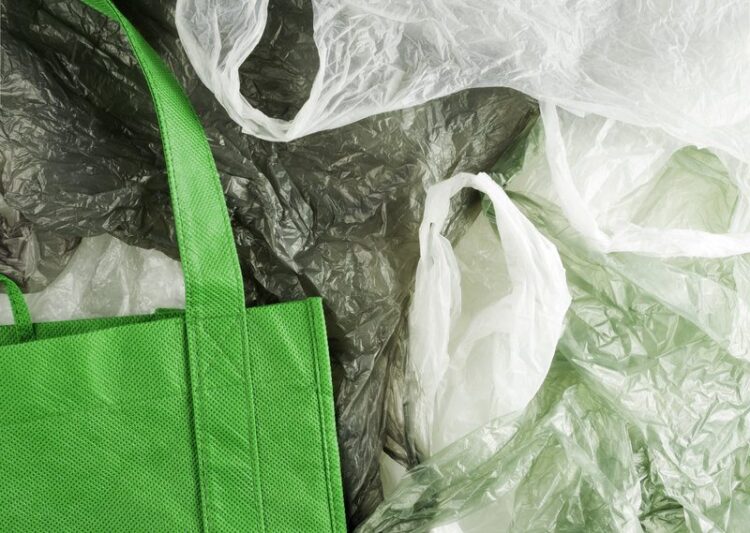A bill that expands California’s bag ban to prohibit all plastic bags – even the reusable recycled-content bags that are a major driver of post-consumer film resin sales – is working its way through the California legislative system.
Senate Bill 1053 builds on the state’s longstanding bag ban, which came about as a result of the lawmaker-approved SB 270 in 2014 and voter-upheld Proposition 67 in 2016. California became the first state with a statewide ban on the thin, lightweight, single-use plastic bags distributed at point of sale in grocery, retail, foodservice and other business establishments.
The existing bag ban directed businesses to charge a minimum 10-cent fee for reusable, recycled paper or compostable bags. The “reusable” category is defined to allow bags designed for at least 125 uses, and it allows bags of a variety of durable material types, including thicker plastic film that’s at least 2.25 mils, or thousandths of an inch, thick.
Reusable plastic bags must also be made from a minimum of 40% post-consumer resin under the current law. Importantly, they must also be recyclable per Federal Trade Commission guidelines, which state that products can be labeled as recyclable without qualification if at least 60% of the population they’re sold into has recycling access for those products.
California’s bag ban law – and its reusable plastic bag carveout – have been an important driver of PCR demand for film reclaimers. Indeed, when the state temporarily paused the bag ban in 2020 due to the COVID-19 pandemic, one North American film reclaimer saw an immediate decline in PCR sales.
But the recyclable requirement is currently threatening to end the plastic bag carveout entirely, which could mean a significant decline in PCR sales for the reclaimers that supply reusable bag makers.
The recyclability of the reusable plastic bags has been hotly debated for the last few years, including in a 2022 lawsuit filed by environmental advocates, who pointed out that a law requiring stores to have plastic bag drop-off recycling options had expired in 2020. A legislative analysis of the current Senate bill confirmed that “few stores continue to accept them back for recycling and curbside collection programs generally cannot accommodate film plastics for recycling.”
Late last year, California regulators published a study of collection access for all types of recyclables, part of their work to implement new recycling labeling standards. The report dealt a serious blow to the case for reusable bag recyclability: Regulators said just 30% of the state’s population had access to recycling options for the reusable plastic film bags, far below the 60% requirement.
Senate Bill 1053 revises the bag ban to state that reusable bags provided at point of sale cannot be made from plastic film. They can be made from cloth, woven textiles or other washable textiles. It also increases the post-consumer recycled content requirement for paper bags to 50% in 2028. Currently, most paper bags distributed at point of sale must contain at least 40% recycled content.
The bill was introduced in February, sponsored by Sens. Catherine Blakespear of San Diego and Ben Allen of Santa Monica. It was referred to the Senate Environment Committee, where it was amended and passed on a vote of 5-2. It moved through the Appropriations Committee and returned to the floor last week, where it passed on a 31-7 vote on May 21. The bill moved to the state Assembly for a first reading on May 22. It was referred to the Committee on Natural Resources on June 3.
Removing more than 100 million pounds of annual PCR demand
EFS-Plastics, the same reclaimer that reported an immediate impact from the 2020 pause, has expressed concern with the bill.
“Revoking this bill would require grocers to replace polyethylene reusable bags, made with 40% PCR, with paper bags, non-recyclable non-woven polypropylene bags, and cloth bags, all of which have a worse life cycle assessment,” the company said in a statement on the bill. “This would ultimately lead to more unrecyclable materials in landfills and would take away the home for more than 100 million [pounds] of PCR per year.”
The American Recyclable Plastic Bag Alliance, an industry group representing bag producers, submitted comments to the legislature estimating the ban would remove as much as 183 million pounds of PCR demand in California each year.
EFS added it favors an approach floated by the Association of Plastic Recyclers to include reusable bags in California’s in-development extended producer responsibility for packaging program and establish an effective collection system through that channel, rather than to ban them. APR owns Resource Recycling, Inc., publisher of Plastics Recycling Update.
According to legislative records, EFS and APR were joined in opposition by reclaimer PreZero, bag producer Durabag, and industry groups The Recycling Partnership, the Western Plastics Association, the American Forest & Paper Association and the American Recyclable Plastic Bag Alliance, which has opposed the bag ban from the start – when the group was known as the American Progressive Bag Alliance, it launched a major referendum effort to overturn the ban.
Voters ultimately upheld the ban.
Meanwhile, substantially more organizations are supporting the current effort to ban reusable plastic bags. Legislative records show numerous environmental groups and recycling stakeholders are voicing support, including the Northern California Recycling Association, the Resource Recovery Coalition of California, Californians Against Waste and the California Product Stewardship Council. Haulers and MRF operators in support include Republic Services and the Ecology Center, located in Berkeley. A number of local governments have come out in support as well.
The bill’s companion legislation in the state Assembly is Assembly Bill 2236.
A version of this story appeared in Plastics Recycling Update on May 30.



























